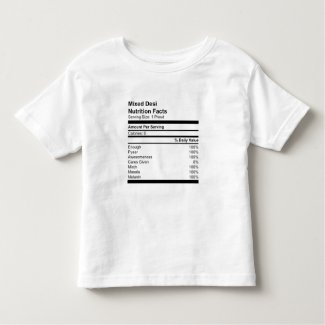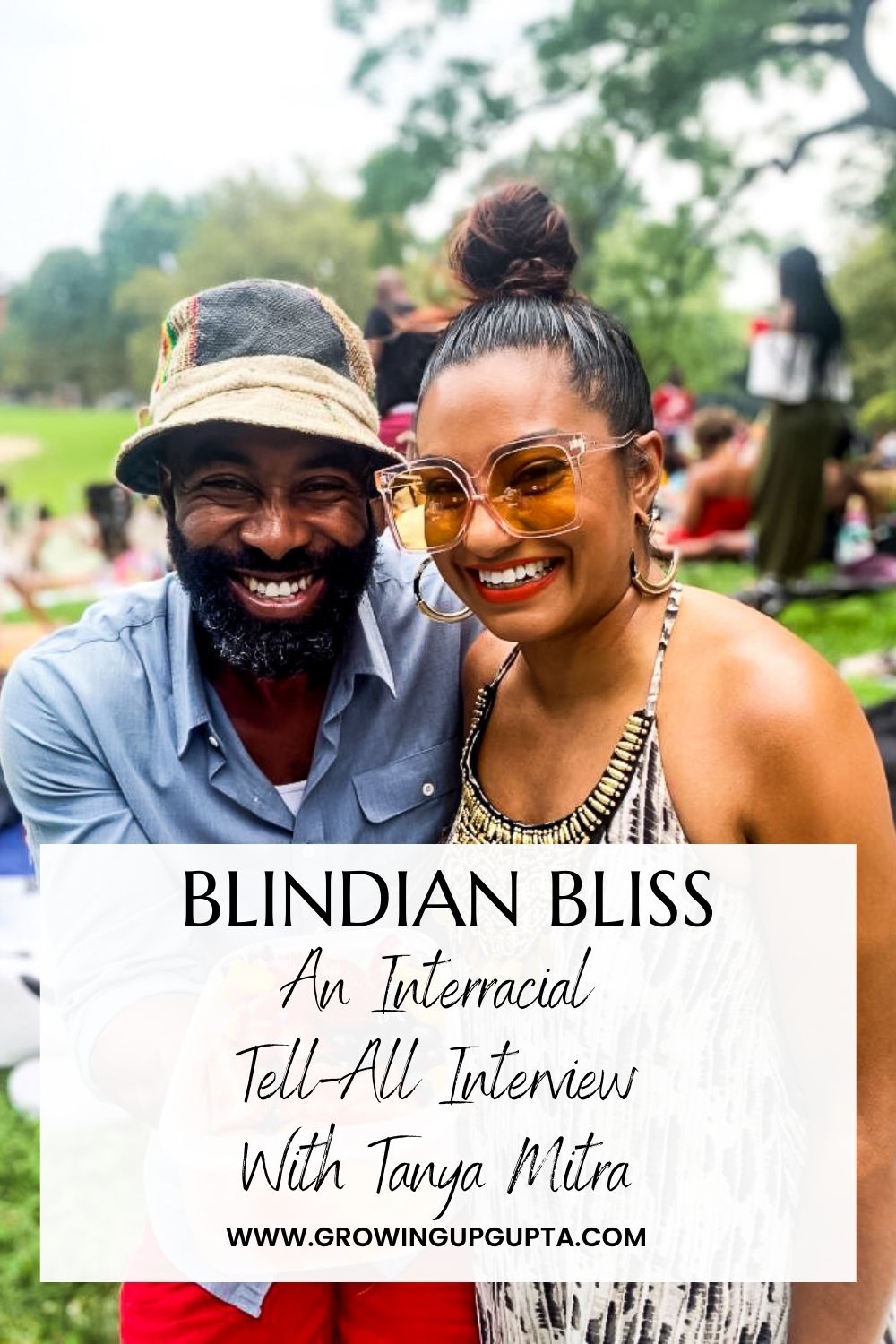
Blindian Bliss-An Interracial Tell-All Interview With Tanya Mitra
A Tell-All Interview With Tanya Mitra
Recently, a South Asian life coach and the creator of Blindian (Black + Indian) Bliss, Tanya Mitra, contacted me about sharing her story and providing her services to South Asian women in relationships with Black Men. Tanya has exclusively dated Black men. She also intimately understands the challenges of dating, marrying, divorcing, raising mixed kids, and blending families cross-culturally. This interview is a deep dive and sounding board for anyone in an interracial relationship who is looking for support in sharing their truth and overcoming objections and cultural boundaries.
Tell me about yourself (where you were born and raised, your ethnicity, and what you do)?
My name is Tanya Mitra, and I am of East Indian (Bengali) parents. I was born and raised in Toronto, Canada, and have resided in New York City for the past 20 years. I graduated from Business School in Canada but always knew that I wouldn’t work in finance or anything traditional industry. I had an immense love for luxury fashion that started around age 8. Therefore, in my final year of university, I applied to The Fashion Institute of Technology in NYC, got in, and embarked on a 20-year dream career that spanned names like Armani, MaxMara, and Eugenia Kim.
In 2018, after I went through some of my own immense personal changes and started doing some deep inner work, I was able to lean into my purpose and became certified as a Life Coach. Since then, I’ve been coaching Women of Color + Women of Immigrant Descent who feel stuck and limited in the current version of their lives to confidently claim their power, courageously choose change, and consciously create the lives they absolutely love to live.
Recently, I was hired by VH1 as a Life Coach (both on and off camera) for one of the female cast members from one of their most highly rated TV shows. Furthermore, I am also a DEI Consultant, working with companies on up-leveling, not just Diversity + Equity but also inclusion practices within their organizations. Currently, I am about to launch my passion project – a Group Coaching Program called Blindian Bliss. The program is designed specifically to address the challenges and hardships South Asian Women face from their families, culture, and society because of their choice to be in a romantic partnership with a Black individual.
Tell me about your first interracial (Blindian) relationship?
My very first boyfriend was Black. His parents were from Jamaica, but he was born in Toronto, like me. We met in driving school when I was 16, and he was 17. At the time, dating wasn’t on the table in my home. Also, since I am an only child, I didn’t have any siblings to talk about it with, either. Hence, I didn’t hide my boyfriend because he was Black but because dating boys was off-limits. So, when my parents did find out about him (by discovering him hiding in our basement bathroom), I was in double trouble for dating a boy and someone Black.
What happened after your parents found out about your boyfriend?
My parents and I struggled with the relationship for years because I was young, and then I realized that I needed to use my voice to speak my truth. So, after my first (secret) relationship, I intentionally started conversations about my boyfriends and told them about who they were as a person. I talked about how I didn’t subscribe to what the ‘aunties’ thought about me, or my choices, why dating whoever makes you happy and who you connect with is what matters most. I understood that instead of hiding my relationships, no matter who I was with, it was me not living my truth. And that felt so uncomfortable to me that I decided that involving them in my life was the better option, even if they didn’t understand my choices.
How were you and your parents able to grow together?
After about 2-3 years of lots of tears and talks, my parents and I all grew to be able to see things differently and communicate more effectively. From then on, they’ve not just been supportive, but champions of all my relationships (every single one of which has been with a Black man.) Even as I navigated a divorce and then pregnancy and partnership with a new man, they’ve been there in positive, encouraging, and uplifting ways, making sure I’m good and that my kids are too. They are now advocates within their own community for openly loving whomever you choose and have inspired so many other parents of those in interracial or interfaith relationships to open their minds, too.
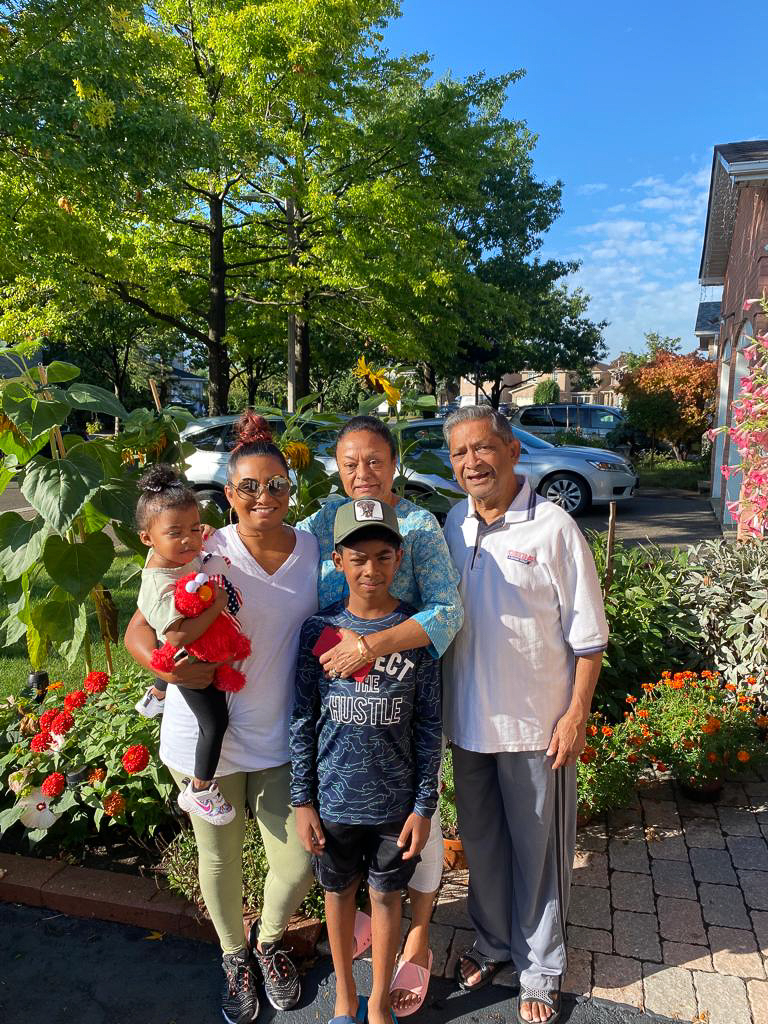
You mentioned that you are divorced. How did you meet your ex, and how did you tell your family about him?
I met my ex-husband, a Black Trinidadian-American, in 2008 in Prospect Park in Brooklyn. We didn’t start dating until a few months later and felt instantly connected. We were into many of the same things (he worked in music, and I worked in fashion) and shared many of the same ideologies about people and the world. Five months into our relationship, he told me that a child had just been born, and it was confirmed to be his. He already had a daughter (who was 11) with another woman. I was distraught with this new reality but chose to move forward anyway, fearing, at the same time, how I would tell my parents. I remember telling my mom first and feeling like I had to oversell every ‘good’ quality of his to compensate for the news of the children and the ‘stereotype’ he would fall into. My mom was bothered, but she said she trusted my judgment in moving forward, and I honestly don’t recall how or when my dad was told, but to this day, even though we are divorced, my parents ask for updates about my stepson and have nothing but love for him.
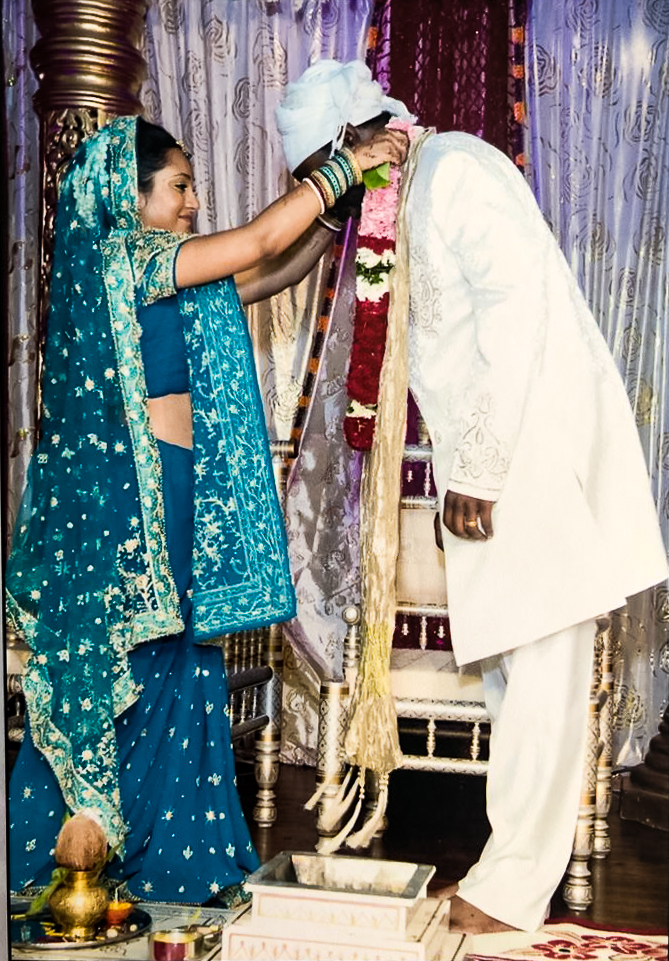
How long were you and your ex married, and what caused the demise of the marriage?
We got married two years after meeting and had our son, Asaiah Jahyin, a year later, in 2011. Our marriage was extremely challenging because he was a public personality, and I had a crazy travel schedule, but we made it work. What didn’t work was the misalignment of our family values, our financial goals, and the futures we saw for ourselves. In 2018, although we were already living separately within our home, he left without notice, leaving me to become a single mother overnight. After that, we went through a messy and 3-year long divorce and still struggle to co-parent amicably.
You stated that you presently have a partner. Tell me about him and how you two met?
I met my current partner, Tyran (Ty), an African-American DJ, in 2019 on my sixth day ever being on a dating app. We had a three-hour-long first conversation and a 10-hour-long first date and have been going strong since then. Ty has two sons from a previous relationship, Satchel 22 and Justus, 17, so them, and Asaiah, plus Noble (my stepson from my marriage), as well as our beautiful daughter, Sevyn India, who is now two and a half, make for a very busy, big, blended Blindian family.
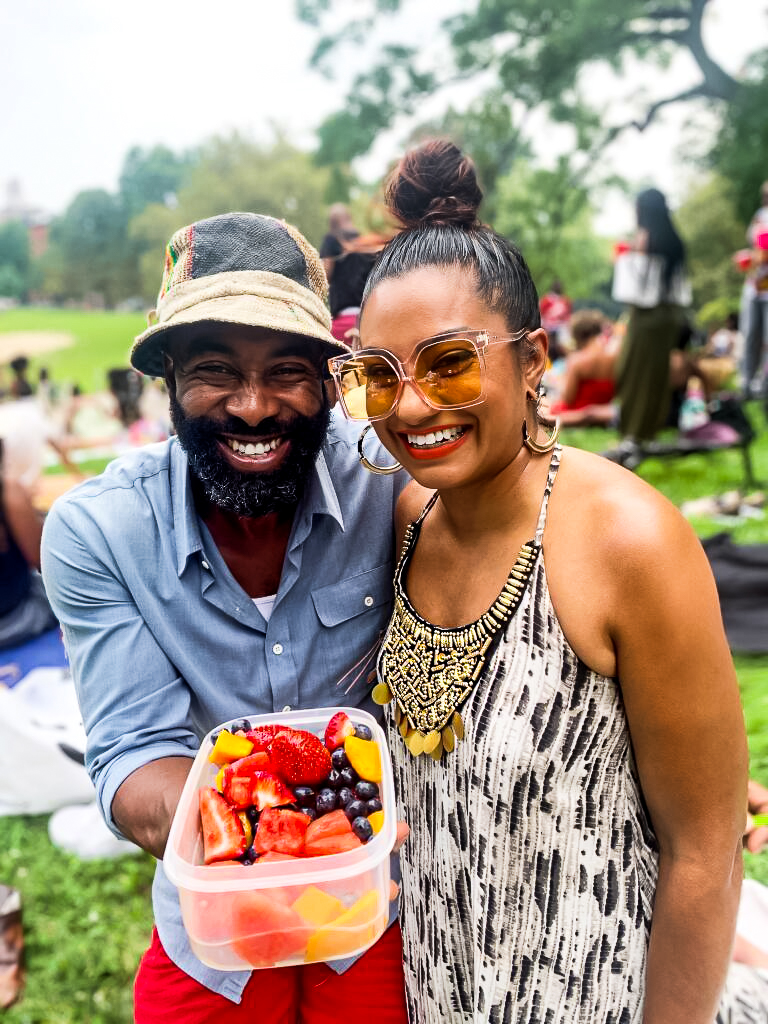
How long have you and Ty been together? What hurdles have you dealt with as a couple?
Ty and I have been together for three and a half years, but we got pregnant right at the beginning of the relationship, which was pretty shocking. It also set the tone for the work we’ve put in and continue to put into the relationship. Once you’re faced with that news and the decisions around how to handle a brand-new life, you’re having very different conversations than two people just dating. From the very beginning of our relationship, we were challenged by a lot of external factors in addition to my pregnancy, and I was still in the midst of a very messy divorce and newly navigating single motherhood. We moved in together six months after meeting. Everything had to move very fast to prepare us to parent a child together, so we were on fast-forward for the entire first year of our relationship.
Since you and Ty were on fast-forward how do you actively work on the relationship?
The work that we have done in getting to know each other and ourselves is immense. We engaged in and still do couples therapy to support our desire to continuously strengthen our love + understanding for each other and our union. We have fought every day to make it work, no matter what life is throwing at us (and it’s been a lot), and because we do, I know that we’re good for each other. Furthermore, we don’t put any pressure on “forever.” We’ve both been in long-term relationships with children and other blended partnerships which helps us breathe into each new day with new energy.
Tell me how meeting each other’s family/parents for the first time went?
I was pregnant when we met each other’s families, which was quite interesting. At this age and stage of life, our parents have seen and been through a lot and have also seen us go through and manage a lot, so both sides were very warm and accepting of us and each other. My mom and Ty’s mom text each other every day. And my son Asaiah was integrated into Ty’s family just as though he was a biological member. Asaiah is treated no differently than any other kid in the family, and Ty has been the absolute best step-dad I could imagine for him.
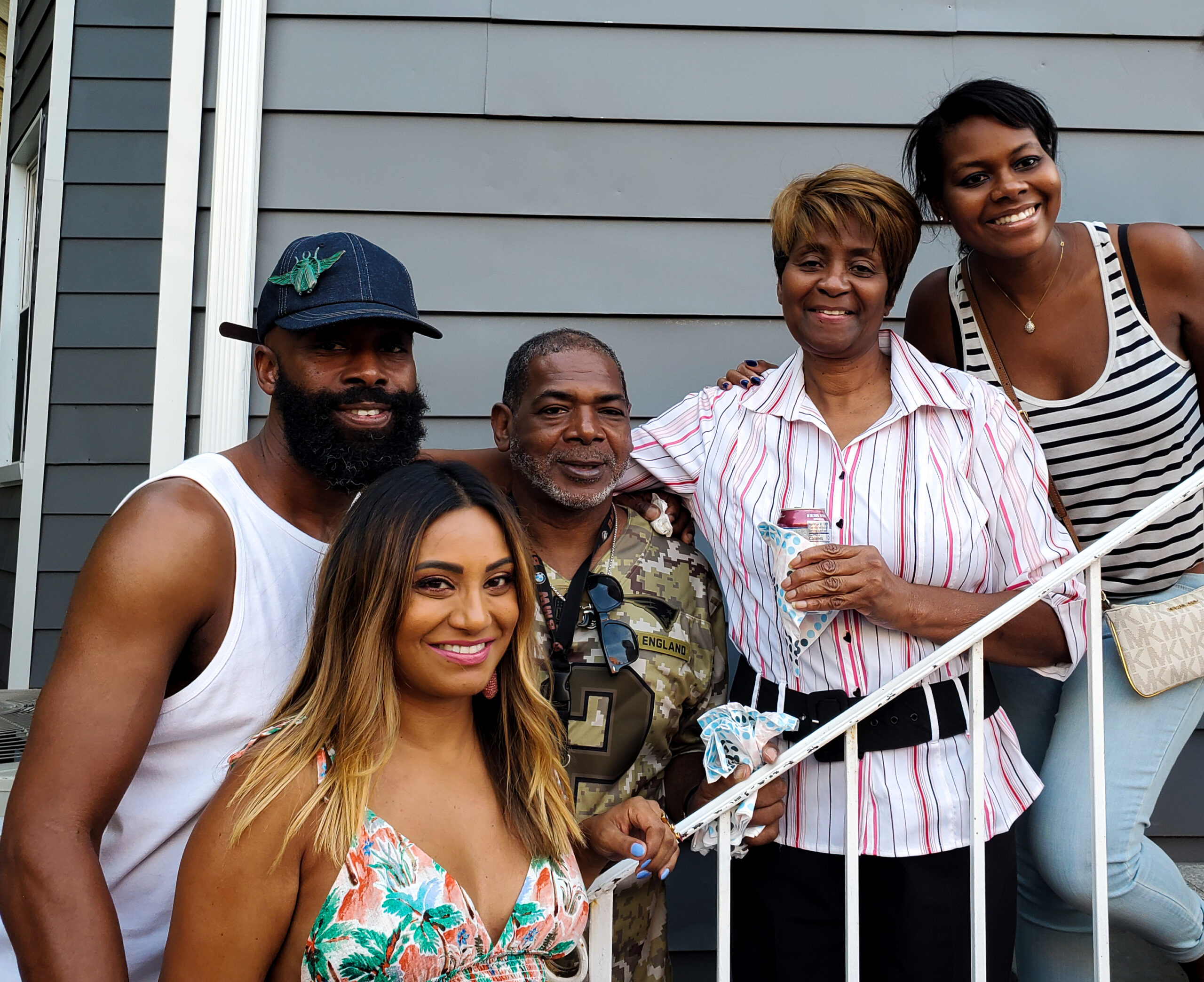
What obstacles have you encountered for having mixed kids and a blended family? How did you overcome these obstacles?
We get a lot of stares from South Asian people, especially older ones. And because my son is usually perceived only as Black, there are often confused looks when I am with him alone, again mostly from South Asian people. But, living in Brooklyn, we don’t really encounter this very much.
An interesting adjustment that I have had to make personally, is explaining the paternity of my children to people and then watching the judgment wash over their faces, particularly because my children are “Black”. The application of the ‘yet another absentee father’ or multiple children with multiple women Black man stereotype is evident. Also, it seems to categorize my value somehow, because the perception is that I have done something wrong in partnering with not just one Black man, but two, and having children with both. It’s often too much for some people to wrap their minds around comfortably. Therefore, I’ve had to learn to stand even more powerfully in the integrity of who I am and my choices as a Woman and a Person.
Really, what I fear far more than anyone’s opinion or judgment is the obstacle of society’s general anti-Blackness, and raising Black children within a very broken system.
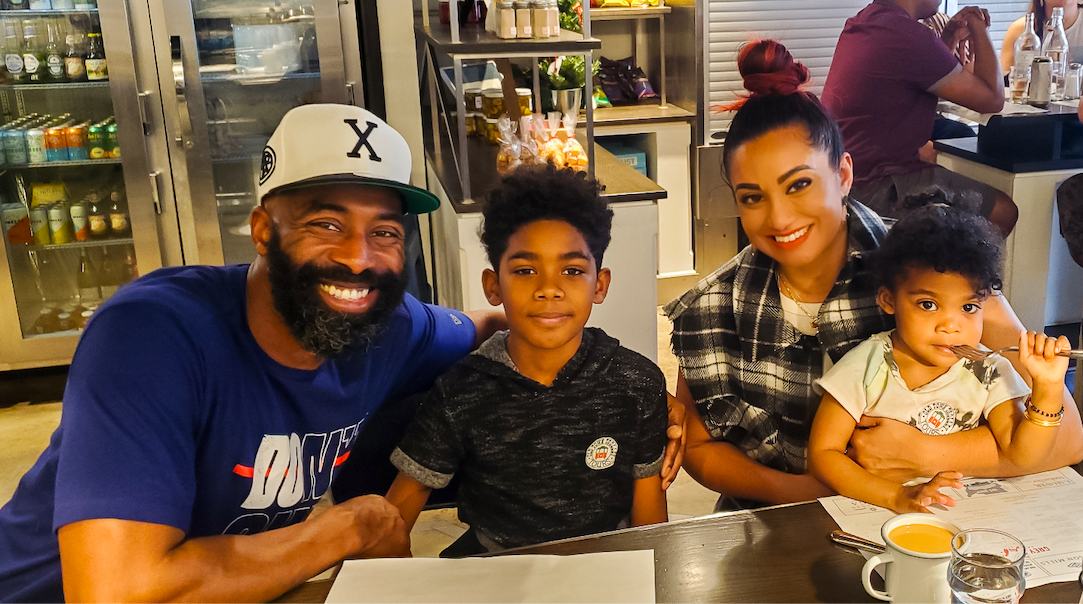
How do you successfully navigate being a blended family?
Being in a blended family that is also Blindian takes a lot of careful and intentional work. We have to empathize with and support each kid’s physical, mental and emotional needs, deal with different parental relationships and schedules and moods and attitudes, and with judgment and bias and societal scrutiny.
Thus, we make sure that everyone in the family gets together as much as possible. This is inclusive of Ty’s kid’s mother and her husband. I think it’s so crucial for all of our kids and step-kids to see that it’s possible to have harmony and love in complicated family structures and that there is not just one way or a ‘right’ way to create a family.
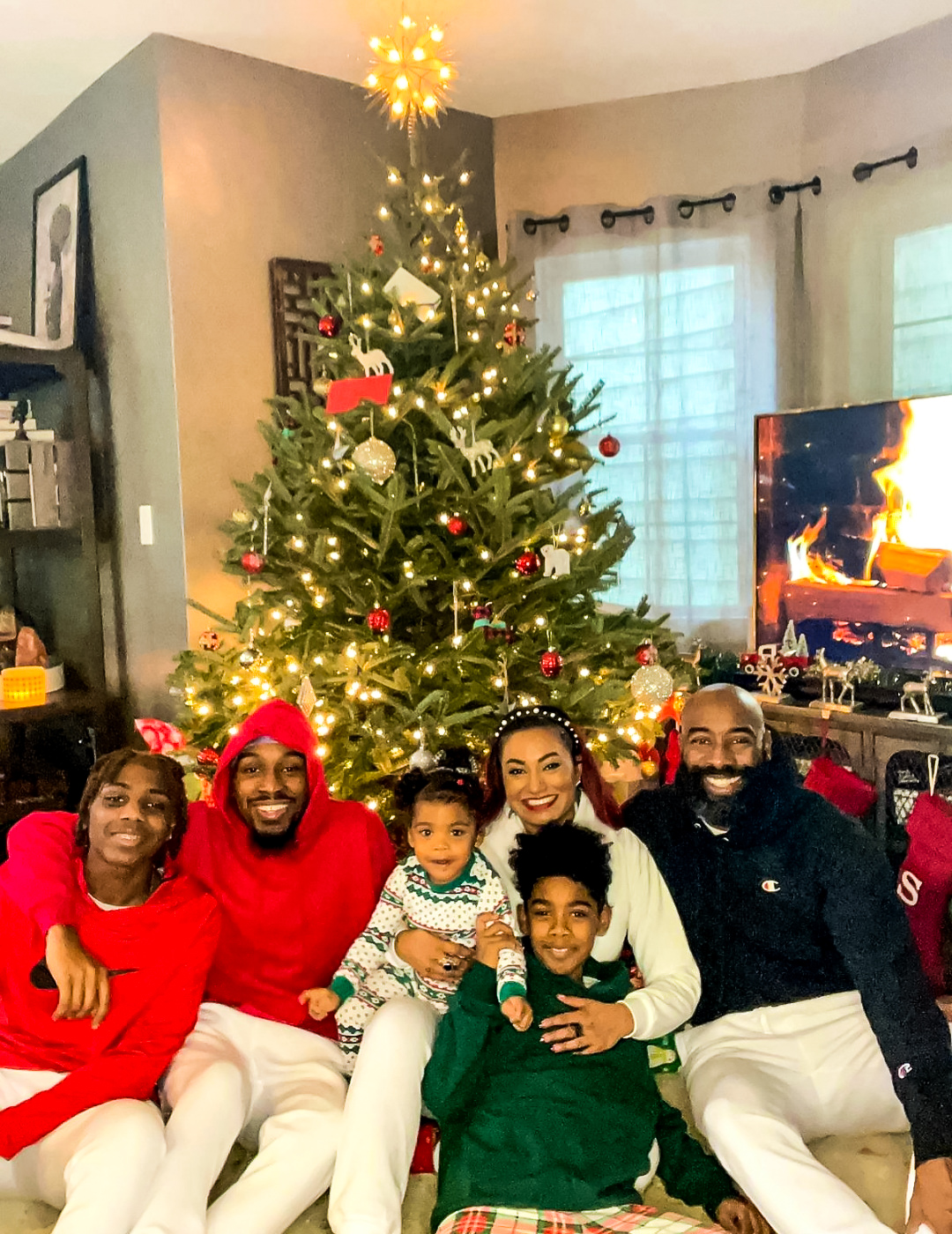
What advice would you give other couples in interracial/cross-cultural relationships?
Communication! First and foremost, between you and your partner. Ty and I are constantly working on our communication; how we communicate, when we communicate, the method we use to speak to each other, the words we choose to correspond, everything. It is the key to everything else. When you communicate efficiently and transparently, removing your emotions from it and listening openly, it quantum leaps the health of and connection in your relationship.
It’s also essential to learn how to comfortably communicate your truth to yourself and others, which is something many South Asians have a very hard time doing, especially when they think they’re acting in opposition to what their parents would approve of.
What do you love about being in an interracial/cross-cultural relationship?
Literally everything! Learning happens every single day in deep and transformative ways. I am excited for my children to grow up owning the beauty of their cultures – and my kids are of two different Blindian cultures – one Caribbean/Indian and one African-American/Indian.
What are you still learning from being in an interracial/cross-cultural relationship?
And I realize how many South Asian men and women are still struggling with external scrutiny from their families and communities for choosing to be with a Black person. It goes the other way around as well, but the deep-seated racism and anti-Blackness in the South Asian community is rampant and is hurting so many people who just want to love who they love.
Use code GROWINGUPGUPTA, to receive 15% off the program! Want to connect with Tanya? Find her social media below!
About Blindian Bliss
Blindian Bliss is a group coaching program for South Asian + Black women struggling with familial, cultural, + societal scrutiny because of their Blindian relationship.
The program was designed especially for you, by Tanya Mitra, Empowered Change Life Coach, DEI Consultant, and South Asian woman who has lived the experience of Blindian (+ blended) relationships for the past 25 years.
After sharing her personal story on social media earlier this year, she was overwhelmed by how many of you reached out seeking support because of how much you’re struggling with navigating family, cultural bias, opinions, objections, prejudices, anti-Blackness, and sometimes even disownment from people you love.
So, she created a program specifically to support you and your experiences, and to help guide you to your own personal freedom, no matter what others think or say.
If you are…
- tired of not living your truth openly + freely
- feeling like you have to choose between a life with your partner + a relationship with your family
- struggling with prejudice, disapproval, judgment or even disinheritance because of your relationship
- drained from living in secrecy + leading a double life
- challenged with creating + maintaining boundaries that protect you, your relationship, your mental + emotional health
- unsure of how to have these difficult + emotional conversations with your family + others
- worried about the short + long term repercussions that your choice will have on you, your partner, your children + your relationships with others
Blindian Bliss is for you. It is a program that is designed to change your life + your perspective by supporting you with the insight, awareness, skills, and tools necessary to live happily despite the outside noise.
We want you to stop suffering in silence, scared of the consequences of living in your truth.
Love is Love, and Blindian Love is Beautiful!
Using code GROWINGUPGUPTA, you will receive 15% off the program investment price!
Learn more about the Program + schedule a complimentary consultation with Tanya through the link in the bio.
The first cohort starts May 5th and runs until June 30th.
Doors are open for enrollment until seats get filled!
Pin this post for later here!
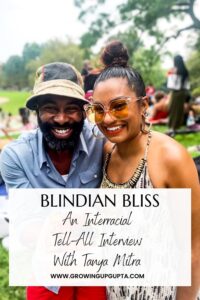
Have a question for us or want to share your story? Please write to us at growingupgupta@gmail.com.
Are you following us at www.growingupgupta.com yet? Please find us on Instagram and Pinterest @growingupguptas and on Twitter @growingupgupta, Facebook @growingupguptablog.
This post contains affiliate links that support the operation of this blog!
Are you following us at www.growingupgupta.com yet? Please find us on Instagram and Pinterest @growingupguptas and on Twitter @growingupgupta, Facebook @growingupguptablog.
This post contains affiliate links that support the operation of this blog!





